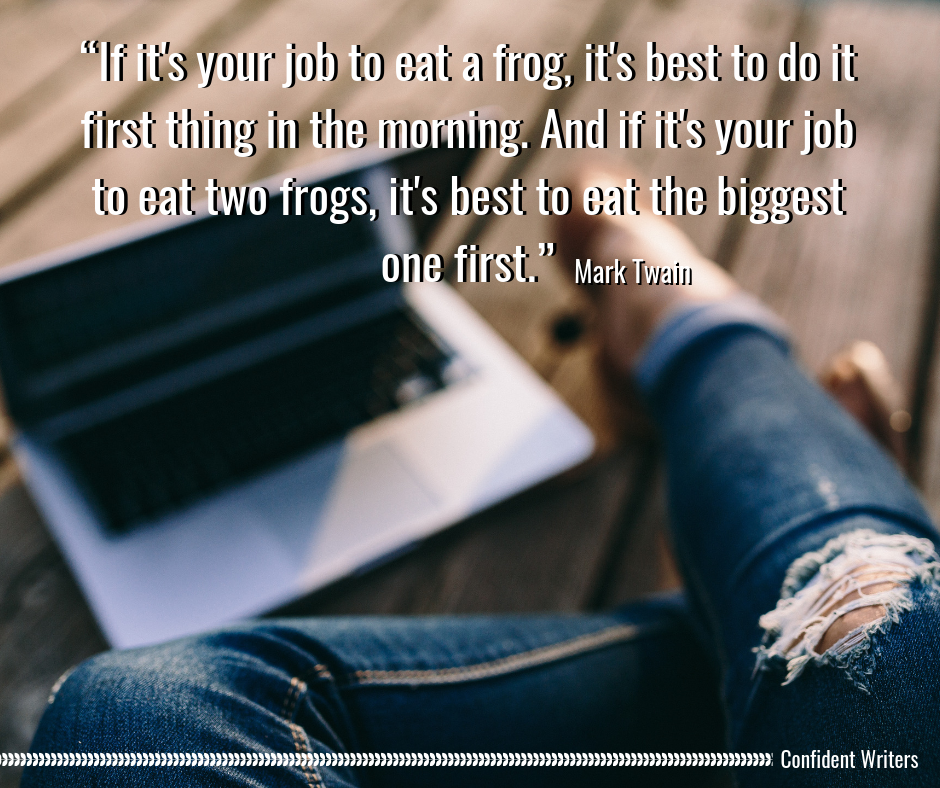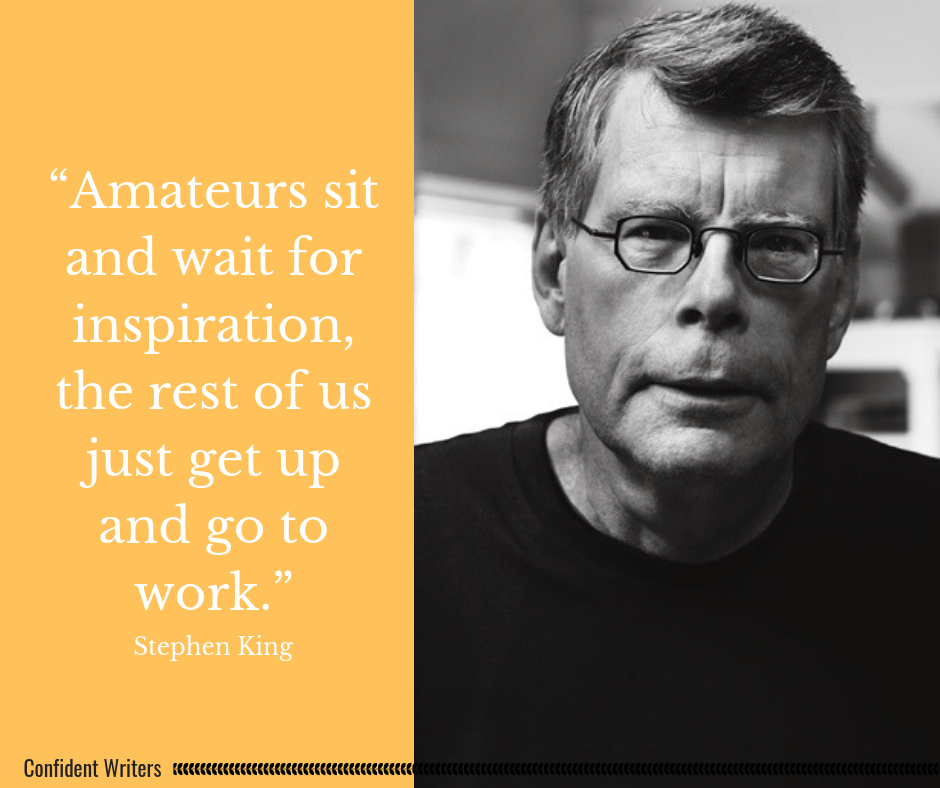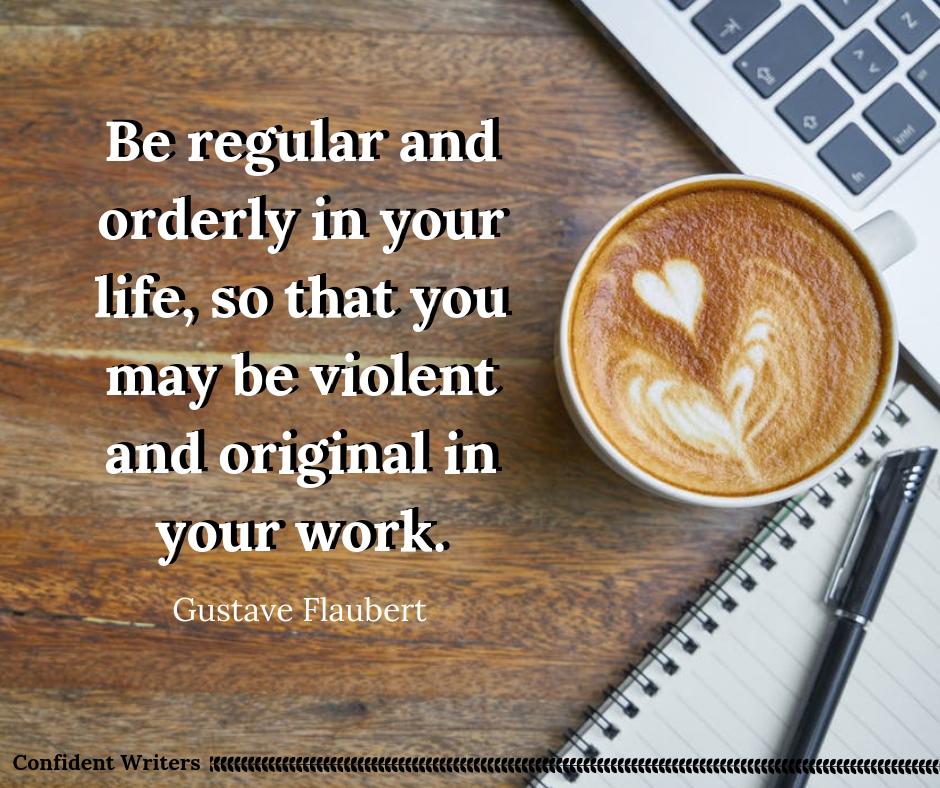
Is there such a thing as writer’s block? I don’t think it’s as common as writers would like to believe. I think we give the “writer’s block” label to a whole bunch of other things because we feel like we can’t do anything about writer’s block — so we’re off the hook.
Not so, my friends.
Do You Really Have Writer’s Block?
I think my experiences are fairly universal when it comes to the trouble of getting words down at a rate I find acceptable. But, I’ve also come to see that what I’ve classically labelled as “writer’s block” is in fact a host of other things I could do something about — if I put in enough effort or discipline.
Procrastination
There’s this myth that we should LOVE to write all the time. What job is like that? People get tired. They get distracted. There are sometimes other places we’d rather be, people we’d rather be with. Tasks we’d rather not do. If you have been given the impression that real writers love to write all the time and if you don’t you have writer’s block — that’s a lie. Sometimes it’s just plain old procrastination.
This could apply to a first draft, but for pantsers it most often applies to the seemingly endless revision process.

Poor Planning
This one goes hand in hand with procrastination. Sometimes, when we don’t know where the story is going next (talking to all my fellow pantsers out there), we feel stuck. We’re just not sure where to take the story next so we do nothing and call it writer’s block. In reality, if we’d take the time to sit down and do a bit of plotting (at least, this has been my way through it) or talking it out with a patient friend or partner, we can navigate our way out.
It isn’t that we don’t know what we could write or could take the story, we just want to minimize the rewriting we’ll have to do and so… We do nothing and call it writer’s block. It isn’t an inability to think creatively or write, it’s a reluctance to go the wrong direction.
Too Long In The Same Place
Get up and move around. Maybe that means moving to a new room to write or a new location. Maybe that means you pause every hour or so and do a bit of housework or go for a walk at lunch. Whatever works for you to reset your creativity and get those muscles working a bit.
When I feel stuck, I go for a walk or wash some dishes by hand. Often my best ideas come when I’m active and focused on something else that doesn’t require me to pay close attention. The shower is another place I am often able to think my way through a stuck place in a story.

Working Too Long
Did you know that most people only have 3-5 good creative hours in a day? If you’re one of those people who sit at a computer and expect to write non-stop (maybe pause for lunch) for 8 hours a day endlessly, I think you’re going to be frustrated. Make sure to incorporate other tasks into your day, either at the beginning (eat the frog) or at the end (reward).
Writers are observers. We take in life around us and then recreate what we see. If you do nothing but sit at a computer and stop actually observing and taking in life around you, how can you expect to write? Take a day off! Go for a hike. Try something small you’ve never tried before – take a cooking class, do a free gym trial, volunteer at an animal shelter. Do something small that scares you. You don’t have to jump out of a plane, but maybe that means talking to the new neighbour, trying a new class, or trying on clothes you’d never wear!
When Are You Most Creative?
Don’t feel that you have conform to whatever schedule those around you stick to. Work when you’re most creative. If that’s first thing in the morning or late at night, it’s easier to work with your internal clock than against it. Me – I have no creativity in the afternoon. None. I try to leave my marketing work for the afternoons – scheduling social media, creating social images, tinkering with the website, etc. I write in the mornings and late at night.
Now, sometimes we have life circumstances that prevent us from doing this (family, day job, etc.), so I’ve found the writing is harder when I’m working against my internal clock so I have to give myself a bit of grace for working slower than I’d like.
Fear Of (fill in the blank)
Sometimes we label our fears as writer’s block. What are you afraid of? That no one will read your work? That people won’t like your work? That you can’t get an agent? That you never seem to have all the pieces? Listen, every writer deals with those fears. Really. Every writer faces moments or seasons where they’re convinced they’re going to be exposed as the frauds they’re sure they are.
If you want to write, sit down and write. Does having someone’s approval make you a writer? Does having an agent make you a writer? WRITING MAKES YOU A WRITER! So write.

When Is Writer’s Block Actually Writer’s Block?
Opinions vary, right. Some deny that it exists at all (and I might be in that camp – see the Stephen King quote above). That said, I’ve found there have been times when all the things I’ve mentioned above don’t really apply. In my experience, writer’s block can often more properly be labelled as burn out. I wrote about that here. Burnout is debilitating and devastating, and the only way out of it is to rest and take a break.
Our mental health is an often over-looked drain on our creative resources. When you’re struggling with anxiety, worry, grief, depression, stress – being creative takes a backseat. You have a finite energy supply, so be kind to yourself when there is a constant drain on that supply for things outside of your control.
Be kind to yourself.
What about you? Do you think you’ve called a writing snag writer’s block when it was really one of the things (or something else) above?
Been told you should learn Deep Point Of View? Had an editor or critique partner tell you to “go deeper” with the emotions in your fiction? Looking for a community of writers seeking to create emotional connections with readers? Check out the Free Resource Hub and then join the Going Deeper With Emotions In Fiction Facebook group.